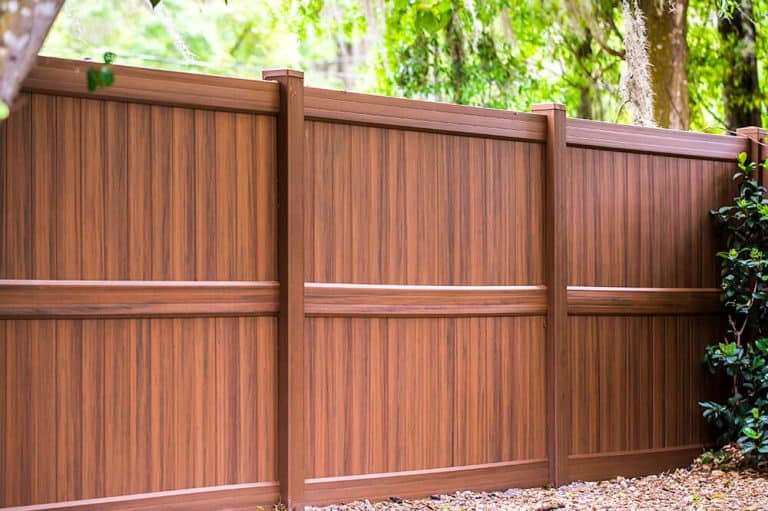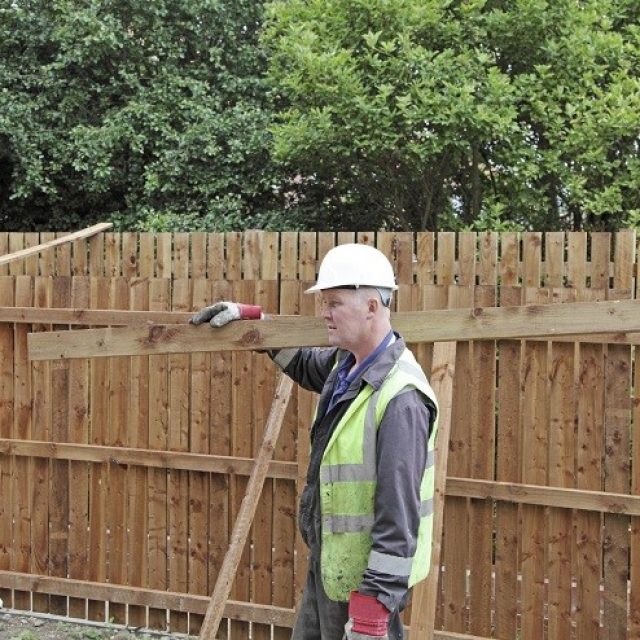Urgent Fence Repair Solutions for Storm or Wind Damage
Urgent Fence Repair Solutions for Storm or Wind Damage
Blog Article
Exactly How to Determine Common Issues That Call For Immediate Fence Repair Work
When it pertains to maintaining your fence, it is vital to detect issues before they end up being larger issues. Regularly looking for indications of decaying timber, leaning panels, or corrosion can save you time and cash over time. You might not realize just how weather and parasites can jeopardize your fencing's stability. Let's explore the usual signs that indicate your fencing requires immediate focus, so you can maintain your residential property safe and secure and looking its best.
Indications of Rotting Wood in Wooden Fences
Have you noticed your wood fence looking a bit worse for wear? If so, it might be time to look for signs of deteriorating wood. Take a look at the base of the messages and panels for soft spots. If you press on the wood and it really feels mushy or collapses, that's a clear indication of rot. Next, search for staining or dark spots on the wood-- these often signal wetness damage. Pay focus to any peeling off paint or coating, as this can expose the wood to additional degeneration. In addition, a poignant, musty odor can show fungal growth. Don't fail to remember to inspect joints and links; if they're loose or dropping apart, the wood below is most likely jeopardized. By catching these signs early, you can protect against a lot more substantial damages and keep your fencing standing strong. Normal maintenance is crucial to extending the life of your wood fence.
Leaning or Tilting Fence Panels
It's important to recognize what created it if you have actually observed your fencing panels turning or leaning. This issue could show underlying structural damage that needs your attention. Allow's check out the usual causes and the repair options available to get your fence back fit.

Reasons For Leaning Panels
It's usually an indicator of underlying issues that require attending to when you observe your fencing panels turning or leaning. One usual reason is inadequate water drainage; too much water can erode the dirt around the fencing articles, deteriorating their support. Another perpetrator could be strong winds or tornados that press versus the panels, especially if they're not appropriately anchored. Additionally, the natural settling of soil gradually can trigger posts to change, causing a tilt. Parasites, like termites, can endanger the integrity of wood panels, triggering them to lean too. Ultimately, inadequate setup methods may cause panels not being safely established, leaving them at risk to leaning under pressure. Address these issues immediately to keep your fencing's integrity.
Indicators of Structural Damages
Observing turning or leaning fencing panels can be disconcerting, as these concerns often suggest architectural damage that requires prompt focus. When your fence begins to lean, it may signal that the posts are moving or that the dirt around them has deteriorated. Pay close focus to spaces between panels or blog posts, as these can also recommend instability. deck builder. In addition, check for fractures or splintering in the wood, which can damage the overall structure. If you notice rust or rust on steel parts, it could jeopardize the stability of the fence. Remember, ignoring these indications can lead to much more extreme damages down the line, so it's vital to assess the scenario immediately and take action before it gets worse
Repair Work Options Available

Rust and Corrosion in Steel Fences
If you own a metal fencing, you might discover corrosion and rust sneaking in with time, specifically if it's exposed to dampness. These issues not just affect the look of your fence but can also jeopardize its architectural stability. To identify corrosion, try to find reddish-brown spots or patches, which indicate the metal is oxidizing. Rust can spread quickly if left unattended, leading and weakening the fencing to pricey repairs.To deal with corrosion and click now deterioration, you need to clean the impacted locations with a cable brush and use a rust-inhibiting primer. Once the primer dries out, consider repainting the fence with a weather-resistant paint to shield it better. Routine maintenance, such as examining for indicators of rust and touching up paint as needed, will aid prolong your fence's lifespan. Attending to these issues immediately assures your steel fencing remains solid and visually appealing for many years ahead.
Splits and Splits in Plastic Fence

Sources Of Plastic Damage
Vinyl fencing is popular for its resilience, yet it can still experience cracks and divides due to different factors. One major cause is severe temperature level changes. It can weaken the product over time when vinyl broadens in the heat and agreements in the cool. Additionally, direct exposure to severe sunshine can bring about UV degradation, making the plastic fragile. Physical impacts, like unexpected crashes or hefty branches, can likewise produce fractures. Poor installation or making use of low-grade products can exacerbate these concerns. Age plays a role; older vinyl fence is extra prone to damage. Routine examinations can assist you determine these elements prior to they bring about significant issues. Take positive measures to guarantee your fence remains intact and solid.
Fixing Cracks Properly
Although cracks and divides in your vinyl secure fencing can be worrying, resolving them without delay can prevent more damages and preserve the fencing's appearance. First, examine the dimension of the split. For tiny cracks, a plastic repair service package often includes sticky that can bond the sides, giving a smooth solution. Clean the location extensively before using the sticky, ensuring it sticks properly. For bigger splits, you may require to make use of a vinyl spot. Cut the spot to size, apply adhesive around the sides, and press it strongly onto the split. Allow it to cure based on the producer's instructions. Regular upkeep and fast fixings can prolong your fencing's lifespan, maintaining it looking wonderful for many years ahead.
Loose or Missing Out On Fence Messages
Absent or loosened fencing messages can weaken the security of your whole fencing structure. It's important to deal with the issue right away if you discover any blog posts wobbling or leaning. Inspect for any signs of motion, as this can bring about more damages in time. You can conveniently evaluate the issue by providing each blog post a mild shake-- if it feels unpredictable, it's time to take action.For missing posts, you'll require to change them asap to maintain your fence's stability. Make sure they're safely secured article source in the ground with concrete or gravel for included security when you install new posts. If a post is loose, tighten it by including added assistance or driving it deeper into the ground.Ignoring these concerns can lead to larger problems, like voids in your fencing or even complete collapse. So, keep an eye on your posts and stay aggressive about fixings!
Damage From Weather and Natural Aspects
Weather and natural environments can inflict chaos on your fence, causing different forms of damage that call for timely interest. Hefty rain can trigger timber to rot, making it unstable and weak. Snow build-up may flex or damage panels, while strong winds can root out fencing posts or trigger areas to lean.If you notice cracks or splintering in wooden fencings, it suggests drying because of extreme sunlight direct exposure. Meanwhile, steel fences can corrosion if protective coatings disappear, particularly in moist or coastal areas.Inspect your fencing frequently after tornados or extreme weather to capture any type of damage early. Dealing with these that site concerns rapidly can save you from pricey repair work down the line. Do not wait till a little trouble develops into a significant one; remain proactive and keep your fence in leading shape to maintain both functionality and visual charm.
Insect Invasion and Termite Damage
When you discover indicators of bug problem or termite damage, it's important to act rapidly to stop further damage. Search for mud tubes along your fencing or hollow-sounding wood, as these indicate termites go to job. You may additionally see tiny openings or frass, which is termite droppings appearing like sawdust. If you spot any of these signs, it's time to assess the damage.Don' t delay till it's far too late; bugs can jeopardize your fencing's honesty. Examine the surrounding location for beetles or ants, as they may be contributing to the issue. If you presume a problem, consider speaking to an insect control expert to treat the issue.repairing and confirm or replacing damaged areas of your fence without delay not just recovers its stamina yet likewise prevents insects from spreading better. Remain attentive to maintain your property secure and pest-free.
Regularly Asked Concerns
Exactly how Commonly Should I Examine My Fencing for Damage?
You need to inspect your fence at the very least two times a year, ideally during spring and loss. Routine checks help you spot damage early, conserving you time and cash on repair services while maintaining your property's look and protection.
Can I Fix a Fence Myself or Employ an Expert?
You can definitely repair a fence on your own if you have the right devices and abilities. Working with a specialist guarantees quality job and conserves you time, specifically for intricate fixings or comprehensive damage.
What Equipment Are Required for Fundamental Fence Fixings?
For standard fence fixings, you'll need devices like a hammer, screwdriver, pliers, a saw, a degree, and measuring tape. deck builder. Depending upon the repair, you may likewise need nails, screws, or substitute boards
Just How Much Does Fencing Repair Service Normally Cost?
Fencing repair work costs differ widely, however you can anticipate to pay in between $200 and $1,500 depending upon materials, labor, and degree of damages. It's smart to get multiple quotes for the best deal.
When Is the very best Time of Year for Fencing Fixes?
The most effective time for fence fixings is throughout light weather, commonly in spring or early loss. You'll stay clear of extreme temperatures, making it easier to function and ensuring the products set appropriately for lasting toughness (deck builder). Observing turning or leaning fencing panels can be worrying, as these issues commonly suggest architectural damage that requires immediate interest. Absent or loosened fence articles can undermine the stability of your whole fencing structure. Snow buildup might bend or damage panels, while strong winds can root out fencing posts or trigger sections to lean.If you observe fractures or splintering in wood fences, it's a sign of drying out due to extreme sunlight exposure. Steel fencings can corrosion if safety coverings put on off, particularly in seaside or moist areas.Inspect your fence routinely after storms or severe weather condition to capture any type of damages early. Fencing repair work costs differ extensively, but you can expect to pay between $200 and $1,500 depending on products, labor, and extent of damages
Report this page